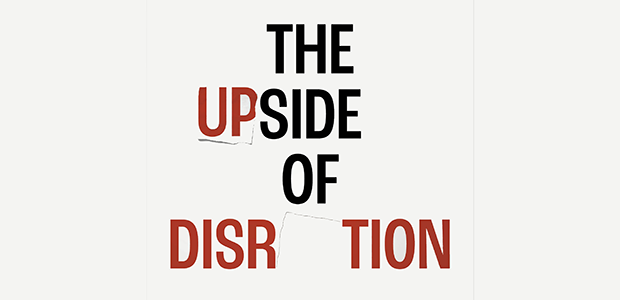
5 essential tools to future-proof your startup's success
Terence Mauri, a world-leading expert on the future of leadership and Thinkers50 author, argues that as the world evolves faster, every startup founder needs to prepare their business for tomorrow. Here’s how.
From talent to tech-led disruption, startup founders are going through turbulent times. Still, the ability to future-proof your startup is only as good as your mindsets, choices, and assumptions. The Philosopher Yuk Hui wrote: "To regain the future, we must nurture our relationship with the unknown.” Every business starts as an act of disruption, but to sustain vitality for the long term requires reimagination, which is the human force that can push through the unknown and define a bolder future. New contexts demand fresh perspectives. Big disruptive trends threaten to upend and reshape the entire startup ecosystem over the next five years – AI, industry convergence, talent scarcity, new customers, new regulations, and new competitors will only accelerate. The question for you is, ‘Will you watch the world change around you, or will you be the future-ready from the start?’
Focus on velocity, not speed
The reason is simple. Speed is the time rate you’re moving along a path, while velocity is the rate and direction you’re heading in. Speed without aligned direction can lead to strategy or culture drift and waste precious talent and resources.
Fight complexity with simplicity
Are you a complexifier or a simplifier? When you run into a problem you can’t solve, don’t make it smaller – make it bigger. Today’s challenges can’t be solved with yesterday’s thinking. Thinking small and being an incrementalist depletes your ambition and energy. You’ll ignite purpose and spark new ideas and fresh perspectives when you embrace the urgency and scale of your biggest challenges.
Have meeting-free days
You’re having too many meetings! Hack Future Lab’s research highlights that since the Pandemic, the number of back-to-back meetings has doubled and are often scheduled with no breaks in between. Too many wasteful conferences lead to a higher cognitive and leadership tax. A meeting-free day increases autonomy, engagement, focus, and resilience by over 3X.
Have a ‘No’ strategy
Hack Future Lab’s research highlights that 83% of leaders are drowning in too many priorities and over-commitments. This erodes attention and doubles the risk of shallow work (low contribution) versus deep work (high contribution). A ‘No’ strategy is one of the best forms of optimisation and a powerful way to protect attention. It’s a clarifier, a simplifier, and a multiplier of ROI. Not return on investment. Return on Intelligence.
Attention is a growth multiplier
If there’s one piece of advice for startup founders, it would be to remember that data isn’t the new oil. Attention is the new oil. Attention to context-setting, pace-setting, and direction-setting. Attention to learning and un-learning. Attention to shaping a bold future and making things happen. A leader’s attention, pace, and mindset are under constant pressure when navigating the future of work and leading and embracing perpetual transformation.
Future thinking from the start
Without reimagination, leadership breaks down, startups die younger, people stop learning, and cultures decay. In an age with record levels of social tension, economic nationalism, and technological revolution, it’s time for startup founders to put ‘future thinking from the start’ at the heart of their purpose, strategy, and planning and use it as their North Star for navigating deep uncertainty and complex futures. The best way to future-proof your success for today and tomorrow’s world is to start before you’re ready and pivot from a ‘wait and see’ mindset to a ‘challenge and grow’ one.
Disruption expert Terence Mauri is the author of The Upside of Disruption: The Path of Leading and Thriving in the Unknown, published in collaboration with Thinkers50 and Wiley.

